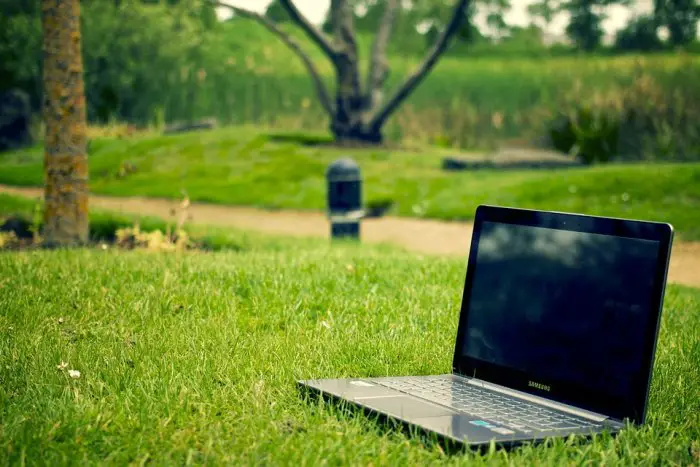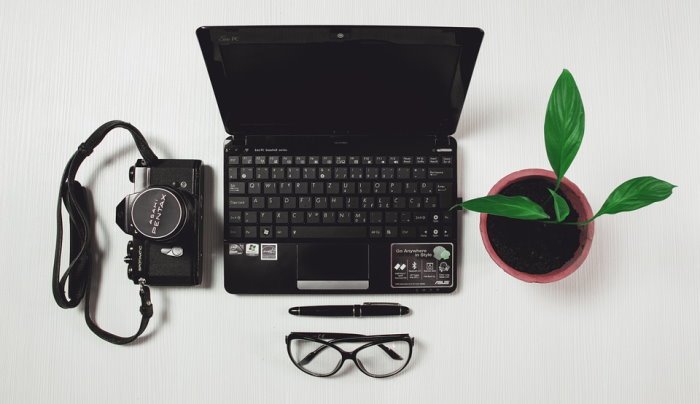The irony with everything we buy and find precious is that most of us don’t even bother to read the manuals until something is right. We usually turn to the manual, if we can find it, to correct or correct a problem. Textbooks usually give the do’s and don’ts and the means of making an article last much longer. It’s the same with computers too. In case of damage, we are looking for the manual. There are things that can damage a computer and shorten its life – and if you take precautions, you can avoid damaging the hardware.
Do not read the manufacturer’s user manual
The manufacturer knows more about your computer than you do, so the user manual is important. From the simple procedure to turn on the computer to the best items to keep it clean are all included in the user manual. The computer user manual should be read before using the computer. It should not be taken for granted that everything is known on computers, so the manual is not important. There is always progress in computers, so there may be something new that needs special attention. PCs may look alike, but they may have different specifications, features, and needs. You can have similar computers, but one can be a slight upgrade, so it can have something slightly different.
Common things that can damage your computer
Computers have a lifespan and will eventually die. However, there are things that, if done on a computer, shorten its lifespan. Some things may seem simple and harmless and others may be obvious. A computer is an expensive investment and everything must be done to make sure it lasts as long as possible.
Let’s see some of the things that can damage your computer and shorten its lifespan:
- Lift a laptop by the cover
- Leave the computer exposed to the elements
- Installation of unverified software
- Little or no maintenance
- Move the computer with plugged in and out objects
- The computer used by minors or untrained users
- Use of low-cost accessories and peripherals
- Ventilation blocked
- Overlooking the warning signs
- Eat around your computer
- Cleaning the computer with a harmful substance
- Using the computer in a dusty area or when cleaning.
1]Lift a laptop by the cover
The cover of a laptop is not a handle and should therefore not be used to lift the laptop. The bottom half of a laptop is usually heavier because it contains all of the internal components. This will make it very heavy and damage the hinges if it is lifted by the cover. Lifting the laptop by the cover could also damage the delicate cables that are attached to the cover. The video cable connects the VGA card to the monitor. On some laptops, the wireless card extends from the bottom of the laptop to the cover of the laptop. Lifting the laptop by the cover could damage the connection. The webcam and microphone are located in the laptop cover and are connected to the bottom of the laptop. Lifting the laptop by the cover will damage the webcam and microphone. The laptop’s hinges could be stretched and the sides of the laptop could force open over time. The laptop can also slip and fall when lifted by the cover.
2]Leave the computer exposed to the elements

Computers like other electronic devices are sensitive to heat and extreme liquids. Most computers are not built to withstand the elements and water, otherwise the sun will damage them. Leaving a computer near a window or outside where the sun or water can catch it will malfunction or be badly damaged. Untinted glass windows will let in sunlight and direct sunlight will damage a computer if it is left exposed for long periods of time.
3]Installation of unverified software
Pirated or unverified software can pose a threat to the health of your computer. The software can be used to mask malware and, once installed, it could damage your computer. Malware can cause your computer to malfunction and even crash. The crash can result in the loss of valuable data.
Lily: Consequences and risks of using pirated and counterfeit software.
4]Little or no maintenance
Computers require maintenance to keep them running smoothly and to extend their life. Maintenance involves both hardware and software and should be performed regularly. Failure to perform maintenance can result in damage to the computer and loss of data. Software maintenance includes software updates, malware scanning, and disk defragmentation. Hardware maintenance includes cleaning the exterior of the computer and dust from the interior of the computer. Accumulation of dust and lint can cause blocked ventilation and overheating. Most of them are preventative maintenance, they must be carried out before the appearance of problems. Users should also be familiar with the sounds and actions of their computer, anything that seems out of place or any behavior that does not seem normal should be dealt with immediately. A slow moving computer can be a sign of overheating, an accumulation of old files, or a signal that malware is working.
Lily: Tips for keeping Windows 10 in good working condition.
5]Move the computer with plugged in and out objects
Moving the computer with plugged in and sticking out objects can damage the computer as well as the sticking out. You or someone can walk on a cord that could damage the port to which it is connected or break the cord. Flash drives left plugged in while the computer is moving can strike an object and damage the USB port or flash drive, or both. Whenever a computer needs to be moved, it is best to unplug all cords and peripherals.
6]The computer used by minors or untrained users
Computers can be very advanced, but they are quite delicate and care must be taken when using them. To minimize hardware and software damage, users should be knowledgeable about the use and maintenance of the computer. Minors or inexperienced people can seriously damage a computer and its contents. Laptops have all of their components under the keyboard, so heavy use or liquids could ruin everything. Older people or trained people can accidentally install malware. They can also visit unsafe or malicious websites. A trained user would know what to look for and abandon the warning signals. Minors or untrained people should be supervised when using the computer. Children can learn to use the computer, but you can install an external mouse and keyboard to minimize physical damage.
Lily: How to keep your motherboard clean and protected?
7]Use of low-cost accessories and peripherals
Cheap computer accessories and peripherals may not be expensive to buy, but they can be expensive in computer damage. Inexpensive chargers, USB cables, keyboards, mice and the like were not created under strict security guidelines, it means they were not created to keep users or computers safe. Cheap cables and other peripherals can overheat and damage the computer. Low-cost chargers may not be designed for the computer, so it can send too much or too little power to the computer and damage it.
8]Ventilation blocked
Blocked ventilation can seriously damage or shorten the life of a computer. Blocked ventilation can be caused by a buildup of dust and debris or because the ventilation holes are blocked due to the location of the computer. Laptops usually have ventilation holes at the bottom, so placing them on certain surfaces can block these holes. Blocked ventilation will cause the computer to overheat and damage or slow down components. Computers are now made to cash out if they overheat to a certain point and when they fail, there can be a loss of valuable information.
9]Overlooking the warning signs

Ignoring the warning signs when they appear could result in more costly corrections or replacements later. Overheating of the computer, flickering of the screen, noise from the hard drive, slowing down of the computer and other warning signs should not be overlooked. Often, computers could have been saved if the warning signs had not been overlooked. Overheating can damage components and lose data. However, if overheating had been investigated, the cause could have been resolved.
ten]Eat and drink around the computer
Eating around the computer can cause serious damage. Food particles and liquids can fall between the keys and can also attract insects. The laptop motherboard is below the keyboard and water could get between the keys and enter the motherboard. Grease and other food particles can get on computer keys, the touchpad, the mouse, and other parts of the computer. Accidental spills of liquids can seriously damage the computer. If you need to eat or drink, take a break and go out to eat, it will also be good for resting your eyes.
Lily: How to protect your computer against power outages and surges?
11]Cleaning the computer with harmful substances
Computer manufacturers will recommend the most suitable substances for cleaning the computer. Failure to use these items could result in permanent damage to the computer. Aggressive chemicals can damage the color and even the material of the computer case. If the cleaning is carried out inside, the substance could possibly damage the internal components.
Lily: Tips for physically cleaning your Windows computer.
12]Using the computer in a dusty area or during cleaning
Computers use internal fans to keep cool, this is done by drawing in fresh air and releasing a warm one. The computer sucks up almost everything around it that is small enough to enter. Using the computer in dusty and cleaned areas will introduce more dust. This will eventually block the fans and vents and cause overheating. Computers should be turned off or put to sleep during cleaning and, in the best of cases, they should be covered or placed in another location.
Conclusion
Computers will crash at some point and this should not be due to user error. However, certain things can damage your computer and shorten its life. Buying a computer should be seen as an investment that should be taken care of.
Reading the user manual is important as it contains useful information on safety, correct use and maintenance. The manual may even contain basic troubleshooting for certain problems that may develop. The length and quality of life of your computer has a lot to do with how you treat it.

